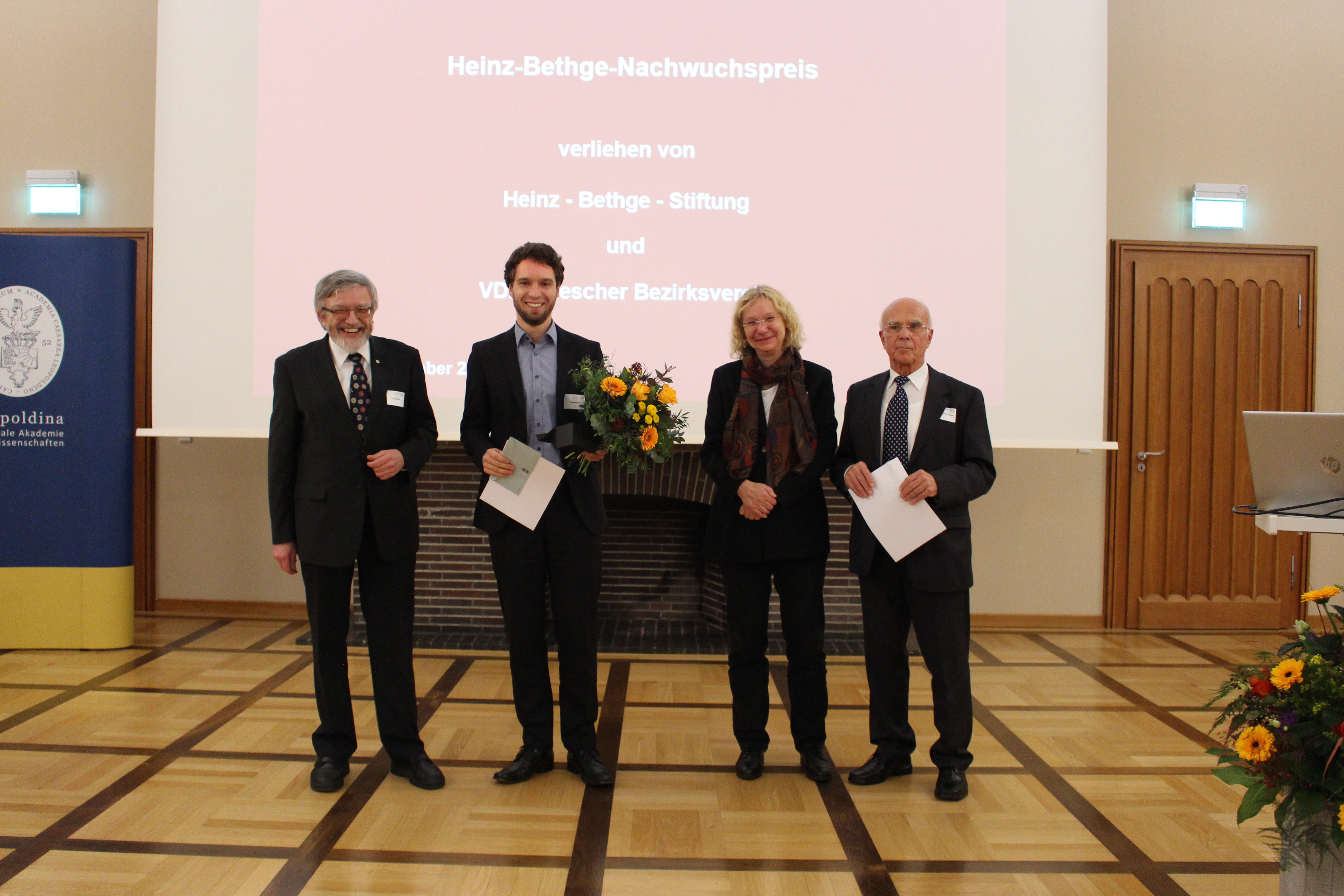Klemens Ilse receives the young talent prize from the Bethge Foundation
For his doctoral thesis on the clarification of the processes involved in the soil-ing of solar modules, Klemens Ilse from the Fraunhofer Center for Silicon Pho-tovoltaics CSP in Halle (Saale) received the young talent prize awarded by the Heinz-Bethge Foundation for applied electron microscopy. His findings could help increase power yields, especially in the case of solar modules in desert regions.
The Heinz-Bethge Foundation promotes research and development in the field of applied electron microscopy and awards a prize each year for outstanding work by young scientists. A jury chooses the best work from a selection of the master, diploma and doctoral theses submitted. The aspects most taken into consideration are the work’s relevance for application-oriented problems, the originality of the solution adopted to study structures, the complexity of the microscopic characterization, the preparatory work and the work’s scientific quality.
“Klemens Ilse’s dissertation is outstanding in all of these areas. We were especially happy to hand out the young talent prize at the commemorative colloquium marking the 100th anniversary of the birth of Heinz Bethge at the National Academy of Sciences Leopoldina. Proof if proof was needed of the continuing relevance of his ideas and the potential of electronic microscopy”, said Prof. Dr. Goerg Michler, the Chair of the Foundation’s Board commenting on the award.
In his doctoral thesis, submitted to the Martin Luther University of Halle-Wittenberg, Ilse deals with yield losses in photovoltaic modules caused by soiling. If dirt accumulates on the solar panel, the cells in the areas affected receive less sunlight and so less electricity is generated. This soiling primarily affects solar plants in desert regions, where high concentrations of dust and low rainfall very often lead to soiling. However, from a physical point of view, the soiling processes are complex and to date have only been partially analyzed and understood.
In his dissertation Ilse examined the soiling processes systematically for the first time, which included the use of analytical transmission electronic microscopy, enabling him to gather decisive findings on the chemical-physical interaction between dust particles and glass surfaces under natural environmental conditions. He underpinned the results of his field and laboratory tests on samples from various desert regions with a theoretical model and also developed his own testing procedure. The findings obtained will help quantify yield losses caused by soiling and evaluate the effects of countermeasures, e.g. as anti-soiling coatings.
“I’m thrilled to receive this award. Without electron microscopy techniques, of which Heinz Bethge was one of the pioneers and which I was able to use at the Fraunhofer CSP, I would never have been able to gather my findings. In my view it also shows the relevance of the practical application of the modern, high-resolution methods used in materials analysis” says Ilse. The prize is accompanied by EUR 250, donated by the Halle district branch of the VDI – the Association of German Engineers.
